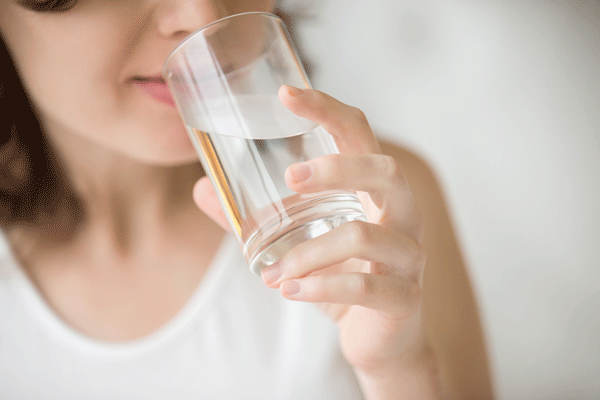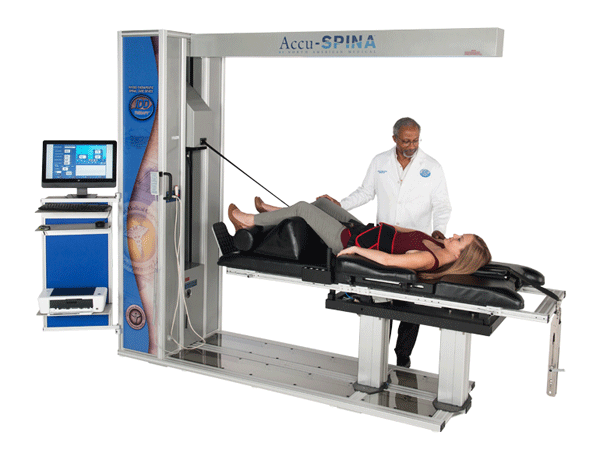
Q&A with Anthony Padgett, physiotherapist and Director at Back In Shape Ltd
Why is drinking water important for the spine?
Water affects every organ and cell in our body but it has particular importance for the spine.
This is because the discs that sit between the vertebrae in our spinal column are filled with a toothpaste-like substance which is comprised mainly of water. These discs act as shock absorbers and stop our bones rubbing against each other. Whether we are walking, sitting, or standing, it all puts pressure on the spine causing the vertebrae to continually squeeze the cushion-like discs which can then lose water.
See also: Cosmetic Surgeons Warn of Dangers of Online Consultations
If we are not constantly replenishing this lost water the disc walls can start to dry and crack, which makes them weaker. At the same time, the loss of water reduces pressure in the disc, rather like a deflated bicycle tyre, and there is less support. This is especially the case as we age.
See also: Why You Deserve Softer Water
What can happen if your back does not have enough water?
If the space between the vertebrae narrows, or if the disc bulges outwards through the weakened wall, this can pinch or put pressure on sensitive nerves around the spine and can result in back pain or nerve pain in the legs (from lower back) or arms (if coming from the neck).
Of course, when we are young, fit, and healthy it is easier to replenish and rehydrate, but as we age, we tend to drink less water and we are less able to retain water as efficiently as we used to.

How important is movement for a healthy back?
Our spine relies on movement to stay healthy. Having a degree of flexibility and strength is important and movement allows the body to replenish water in the discs. But if we don’t move our spine, which is common as activity levels decrease, then we can start to lose that flexibility. It comes down to the simple saying ‘use it or lose it’ and this is an important factor in spine health and avoiding back pain.
See also: Relieving Back Pain
So what can you do to keep your back healthy?
- Exercise. Pilates is particularly good for the back. It increases flexibility and improves your core strength
- Follow a healthy diet
- Drink plenty of water – around 2 litres a day is ideal. If you don’t like the taste flavour it with some fresh lime or lemon but don’t substitute with sugary drinks. Check the colour of your urine. If you are drinking enough water it should resemble a very pale white wine.
If you do find that despite all your hard work you still suffer from back pain the most important thing is to keep moving. It might be painful but it won’t be harmful so there is no need to think you have to lie or sit in one position.
What can I do to ease my back pain?
- Again, Increase your intake of water
- Keep moving even though it is the last thing you will want to do
- Visit a physiotherapist or other practitioner
- Try IDD Therapy for disc problems
See also: What Causes Back Pain? New Answers and the Need for Change
What is IDD Therapy?
IDD (Intervertebral Differential Dynamics) is a computer-controlled treatment that helps decompress the specific spinal segment that causes the pain. It’s non-invasive and helps patients who need something more for their pain when manual therapy alone is insufficient to achieve lasting pain relief.
Patients lie on a treatment couch where they are connected to a machine with a pelvic and a chest harness. The machine applies a gentle pulling force at a precise angle to take pressure off the targeted disc and to gently mobilise the joint and surrounding muscles. Around three quarters of patients having IDD Therapy enjoy success. This is especially significant when we consider that most of the patients we see for IDD Therapy have failed to respond to other treatments.

Is there a ‘quick fix’?
Whatever treatment patients opt for I think the most important thing is to remember there is no real quick fix for back pain and patients need to take their own steps also to ensure they are doing everything possible for a healthy back.
While I can do a lot to help and give them relief from the pain, the overall message at my practice is to get people to take responsibility for themselves. Patients might only see me once a week, the rest of the time the responsibility for their well-being is on theirs.
See also: What Benefits does Filtered Water have on Health and the Environment?
ABOUT THE AUTHOR
Anthony Padgett is an MSK physiotherapist, IDD therapist, and director of Back In Shape Clinic Ltd in Croydon. He has treated some of the world’s greatest athletes at the Crystal Palace National Sports Centre and has lectured for the M.Sc. sports medicine course at the London Hospital.
About IDD Therapy
IDD Therapy is the fastest growing non-surgical spinal treatment for intervertebral discs with over 1,000 clinics worldwide and a network of clinics across the UK.
Facebook: IDD Therapy Europe
Twitter: @IDDTherapyDisc





























